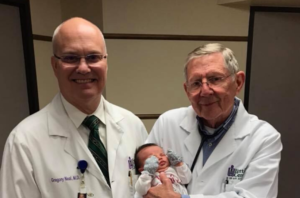Discover Your Path to Parenthood Today.
Fertility Preservation: Learn More About Your Options
Egg freezing, or oocyte cryopreservation, can help you preserve your healthy, mature eggs in case you wish to become pregnant in the future. Common reasons for choosing to freeze eggs include a career or education that leaves you little extra time to start a family, or an illness that makes pregnancy impractical in the near future, like cancer. Freezing your eggs can help you preserve their fertility, and allow you to use them at a later date, when your eggs may not be as strong and healthy.
Testicular sperm extraction (TESE) is a sperm retrieval technique employed during an in vitro fertilization (IVF) procedure that involves collecting sperm from a miniscule sliver of the interior portion of the testicle. If a male experiences azoospermia, or the absence of sperm in the semen, a TESE procedure may be the only option for harvesting sperm to fertilize the partner’s eggs. Once collected, each individual sperm can be injected directly into a mature egg, facilitating the development of a healthy embryo (fertilized egg) that can be transferred into the mother’s uterus. In some instances, it is possible to retrieve sperm from the epididymis, a tubular part of the reproductive tract located just outside of the testis, in a procedure called PESA (percutaneous epididymal sperm aspiration). This is a nonsurgical method that can be done with local anesthetic. Freezing of sperm after the TESE or PESA is also a possibility if the amount of sperm recovered is sufficient.
A hormonal imbalance is often the source of many frustrated potential parents’ inability to conceive. Any number of factors can derail the reproductive cycle, including but not limited to stress, high or low body fat, and radiation therapy. Hormone replacement therapy (HRT), however, can reverse this process. By replenishing reduced levels of female hormones, HRT can help put the reproductive cycle back on track and significantly boost a woman’s chance of conceiving.
For those who interested in donating their sperm or preserving their fertility, our team offers sperm freezing treatment. Fresh samples of sperm are frozen using liquid nitrogen and placed in long-term storage. With careful, continuous monitoring and protection, frozen samples can maintain their viability for up to two decades or more. Potential donors can help others start their own family while other patients can preserve their fertility in the event of a medical condition or treatment, deteriorating sperm count or quality, or a multitude of other circumstances.











